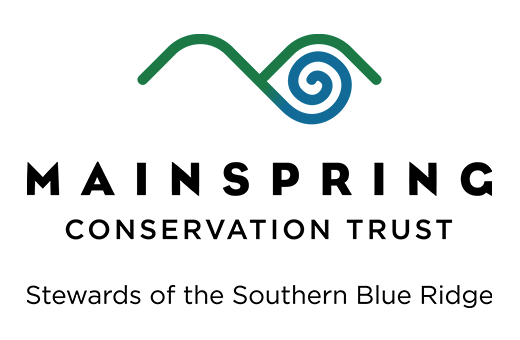
From The Franklin Press, February 21, 2014
A new partnership is expected to strengthen the existing relationship between the Land Trust for the Little Tennessee (LTLT) and the University of Georgia (UGA). Eleven PhD students from UGA’s Integrative Conservation (ICON) Program have committed their academic spring semester to help LTLT and ICON partner, extending the existing relationships between the Coweeta Long Term Ecological Research (LTER) Project and local community members. The new collaboration, initiated by Jason Meader and Bill McLarney of LTLT and Drs. Cathy Pringle and Nik Heynen of ICON/LTER, was established with the hope that the partnership will be sustainable and extend
beyond this original semester-long timeframe.
The partnership between LTLT and ICON revolves around the application of the Southern Appalachian Stream Visual Assessment Protocol (saSVAP), which is being developed though the leadership of Jeremy Sullivan, a PhD student working with Pringle, McLarney and Meador. The saSVAP is a modified version of an original visual assessment developed through Pringle’s group at UGA and is a tool that allows citizens with no scientific background to evaluate the health and condition of their own streams and other local steams within the community.
The goals of the partnership between LTLT and ICON are: (1) develop a plan to implement saSVAP from traditional use within the Little Tennessee Watershed into the Tuckasegee Watershed, (2) exploring ways to train citizens who will then use saSVAP within both watersheds, and (3) learn lessons from saSVAP data collection within the Little Tennessee Watershed to develop a Tuckasegee Watershed database. These goals fit well with the long-term objectives of the LTLT.
This partnership also fits well with the goals of the ICON PhD program. The PhD students, in their second semester of the program, chose the ICON program because they felt a strong desire to work across social and ecological scientific perspectives in their research. The goal of the ICON program is to promote an integrative approach to conservation challenges in collaborating with community members. Responding effectively to human-environment issues requires local conservation groups and scholars to not only develop expertise in ecological or social areas, but to also have the ability to work across disciplines.
In order to accomplish these goals, the program brings together four disciplinary focuses: Anthropology, Ecology, Forestry and Natural Resources and Geography. Students receive training in their chosen traditional area while also working at the intersection of all four disciplines. The ICON PhD program is in its third year, and its current students consist of Hannah Burnett, Linda Kosen (Anthropology), Katherine Brownson, Jessica Chappell, Elizabeth Guinessey (Ecology), Jennifer Bloodgood, Tara Crawford, Jillian Howard, Sebastian Ortiz (Forestry and Natural Resources), Caitlin Mertzlufft and Amy Nichols (Geography).
A foundation of the ICON program is to apply effective, strategic communication with those from other backgrounds and disciplines as well as with the public in general. This new collaboration aims to make the scientific results of the saSVAP meaningful and useful to individuals from all walks of life within southern Appalachia, much like the Coweeta Listening Project (CLP) has done for the Coweeta LTER.
ICON students will directly contribute to the next series of CLP Columns. Each student in the group will bring you one column, either providing insight and updates to the group’s project and partnership or covering a relevant (and interesting!) ecological topic. We hope that you will enjoy reading these articles as much as we’re looking forward to writing them, and we hope that you will read the column during the coming months to learn more about the growth of this collaboration.
You are invited to stay up to date with the rollout of the saSVAP, and we look forward to your thoughts and ideas on this effort.
This column is produced by members of the Coweeta Listening Project (CLP), a branch of the Coweeta Long Term Ecological Research Program, [email protected].


